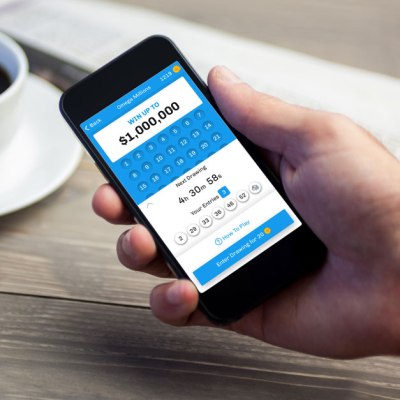Long Game is a bank account, with a twist. Every dollar saved can go toward winning a lottery.
The personal finance app allows users to play games and win cash prizes up to $1 million. It may sound like a gimmick, but these are FDIC-insured accounts backed by Blue Ridge Bank in Virginia.
And now venture capitalists from Thrive Capital and Collaborative Fund are betting $6.6 million that Long Game will provide a windfall. It’s considered a seed-stage round for the company, but follows the $2.6 million raised when the startup launched last fall.
“For too many people, consistent financial savings is both hard and impractical,” said Jared Weinstein of Thrive Capital about why he invested. “Long Game, however, is providing these individuals an effective path toward financial health by applying existing behavior of lottery-like games toward savings.”
CEO Lindsay Holden told TechCrunch that she believes the large market for lotteries is a sign that her startup will work out. There’s a “huge amount of money that’s being wasted on lotteries and we’re trying to redirect that into savings accounts.”
So far, Long Game has gained early traction. The app launched in November and already has almost 70,000 users who trust them with their banking information.
In addition to the possibilities of cash rewards, users accrue .1 percent interest. She hopes that participants will take saving seriously and view the games as a bonus.
While Long Game touts the $1 million prize possibility, so far the largest check they’ve written is $1,000. Like the actual lottery, it’s an odds-based game and the chances of the app making you a millionaire are 1 in 227 million.
To succeed in a very competitive marketplace, Long Game will have to convince more users that the app is secure enough to access their banking information and that this a better option than a more traditional bank.
Ultimately, Holden says they are “trying to create a really fun engaging experience around your finances.”
She told TechCrunch that she plans to use the new capital to hire more engineers and expand the product team. The startup currently has just 10 employees at its offices in San Francisco.
